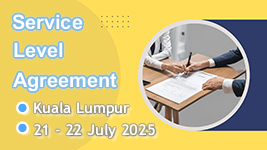SS68
- Other
- courses : Dubai, Jan 2013, Safety & Security
Crisis Management & Emergency Response for the Oil & Gas Industry
Code : SS68
Date : 20 – 21 January 2013
Venue : Dubai
![]()
The Course
Producing energy and emergency preparedness is a 24/7 business. The range and number of potential incidents and emergencies which could affect, disrupt, or put stress upon oil and gas production, including upstream or downstream technical failures; human errors, sabotage or terrorism are increasing. If managed correctly then not all these incidents will be critical or could be classed as a crisis, but those which result in significant losses, or put increased demand on the organisation will have serious consequences for the company, the company’s stakeholders, the country and the reputation of all those involved in the response.
Your company will have plans and procedures in place, you have highly trained teams and resources committed and anticipating that response. But meeting that commitment involves more than being fully prepared, the precedence has to target the corporate efforts on preventing these potential incidents from occurring, enhancing your preparatory anticipation, your Risk and Business Impact Analyses, scrutiny of major accident hazards, training and exercise programs and research of world events.
- Evaluate and mitigate more than a dozen potential perilous risks to the Oil and Gas Industry
- Organize your Emergency Response Management Teams to their best advantage Designing effective Crisis Management & Emergency Response strategies
- Create authenticated Corporate wide Communication strategies including Call Centres, Emergency Centres, Media/Government Relationship statements ensuring stakeholder and reputation value
- Table-top exercises with syndicate role-playing will demonstrate to delegates the individual, departmental and corporate roles and responsibilities of all responders
The Goals
- Differentiate between Incidents, Emergencies and Crisis, employ methods on how to avoid unnecessary escalation and how to design your response to each scenario
- Demonstrate the enhanced roles and responsibilities of the Emergency Response Teams (ERT) and Crisis Management Team (CMT)
- Formulate your On-Scene leadership, emergency management and crisis management capabilities and techniques
- Analyze International Standards and appraise eight Industry case studies
- Assimilate the Strategic, Tactical, Operational and planning facets of Oil and Gas Emergency Response
The Delegates
The advanced nature of this event will prove beneficial to those with responsibility for either planning for or responding to incidents, emergencies and crises across the complete management spectrum.
- Designated Incident, Emergency and Crisis Response Managers
- Fire, Safety and Security Professionals
- Risk, Marketing and Insurance Managers
- Operation, Asset and Facility Managers
- Ministry or Government Regulators
- Line Managers and Supervisors wishing to appraise their comprehension of Emergency Response
The Process
This dynamic and advanced course will enhance your leadership capabilities through assessments, syndicate role playing and group discussions, crisis communication skills and team problem solving challenges. A comprehensive manual, relevant case studies, videos and realistic exercises will cover all the aspects of the latest thinking in the industry. A CD containing the manual, slides, exercises, check-lists, formats and templates is included and will of use to you and your team on your return to your office.
The Benefits
- Recognise the attributes of Incident, Emergency & Crisis Response Management
- Review Emergency and Business Continuity Plans and Procedures based on national and international standards and best practices in the Oil and Gas Industry
- Demonstrate techniques to mitigate the full range of risks and hazards
- Employ methodologies to placate issues before they develop into crises
- Appreciate effective strategies and skills to communicate with all your stakeholders at the right time and with the right information
The Results
- Your organisation will acquire an improved state of preparedness, at all levels
- Appreciate the required strategies to retain your organisation’s reputation when dealing with the media and managing the myriad of social media outlets
- Master the full complexity of Emergency Communication Centres (ECC) management, data collection, interpretation, coordination, problem-solving and decision-making processes before, during and after a crisis
- Profit from hands-on oil and gas case studies, stimulating panel debates will enable delegates to decide at what point in the response did matters go right and when it started to go wrong
- Interpret the importance of the human factor, what are the means to ensure the best psychological readiness, resource allocation, deployment, discipline and leadership.
The Programme Content
Day 1
Increase your ability to evaluate, mitigate and respond to challenges to your industry presented by the full range of potential emergency situations, from fire, explosion, releases, spills, natural disasters, terrorism and cyber attacks.
- Evaluate and mitigate each of the risks facing the oil and gas industry
- Incidents, Emergencies, Crises how to organise Emergency Management Teams for each scenario
- Are your assets protected? How to ensure your Security arrangements will suffice?
- Cross border Political influences, cyber hacking and War (conventional, chemical and others)
- Checklists, the essentials of Crisis Management and Leadership behaviours
- Emergency Plans – four levels of planning and the top eleven weaknesses to be avoided
- Programme evaluation concept – Internal and External Audits
- DVD – Case Studies – 3 Tank Farm Incidents. Syndicates identify and discuss the common thread
Crisis Communications & Incident On-Scene Command
- Major functions of the Emergency Communication Centre – centralising your Command & Control
- Basic concepts of ECC configuration and Information Flow with examples
- Based on real incidents, discuss the common mistakes made in ECC’s
- Team roles and responsibilities, extract the best from your team
- Crisis Communications – DVD examples of information sharing, what can go wrong?
- Manage the on-site potential ‘’smouldering’’ Issue before it becomes a Crisis
- Incident Commander and On-scene management. All the essential elements for success
- Investigate the importance of ‘’The Golden Hour’’, what has to be achieved in that first 60 minutes
- DVD & Case Study, Desk Top Exercise – Simulation of a time-lapsed Major Incident at a Refinery
- Delegates will be allocated roles responding to a rapidly developing scenario
Business Continuity Management (BCM) and Incident Command (ICS) for the Oil & Gas Industry
- How does BCM fit into Crisis Management
- Team Roles and Responsibilities
- Plans and Business Impact Analysis, formats, examples and templates
- DVD & Case Study, Desk Top Exercise – Simulation of a time-lapsed Terrorist attack on an asset
- Critical elements of corporate Command and Control (ICS) for Crisis Management
- Review of International Incident Command Systems
- International Standards for BCM, ICS, Spills, Crisis/Environmental Planning/Response will be explained and covered in a detailed handout
Day 2
Media and Reputation Management
- Strategies to communicate with all stakeholders at all levels – Government, Public, Media, Staff +
- Tools to manage the new social media (blogs, twitter, face book) always be one step ahead
- Protect your reputation and brand with your customers, suppliers and bankers
- Media management template handout lists Do’s and Don’ts for Conferences and TV Interviews
- Case Study – recent media crises J&J USA; BP Alaska/Texas City/Gulf of Mexico; Total Elgin.
- DVD, Desk Top Exercise – Syndicate Media Crisis response to a given real-life scenario followed immediately by a simulated Press Conference
Crisis Management Plan Testing, Training and Exercise Simulations and potential problems
- ‘’the safe policy and procedures were in place – the practice was deficient’’ Piper Alpha Report
- Benefits of Exercising and selecting the right type of exercise for the asset/scenario
- What functions need to be tested and what will the outcomes be for the participants and you
- Conducting Post-Incident/Exercise debriefings, evaluations and follow-up, when, how and what format
- Psychological and potential welfare problems for you and your team after a traumatic experience
- Open Forum – time permitting
Tags: Dubai, Jan 2013, Safety & Security





